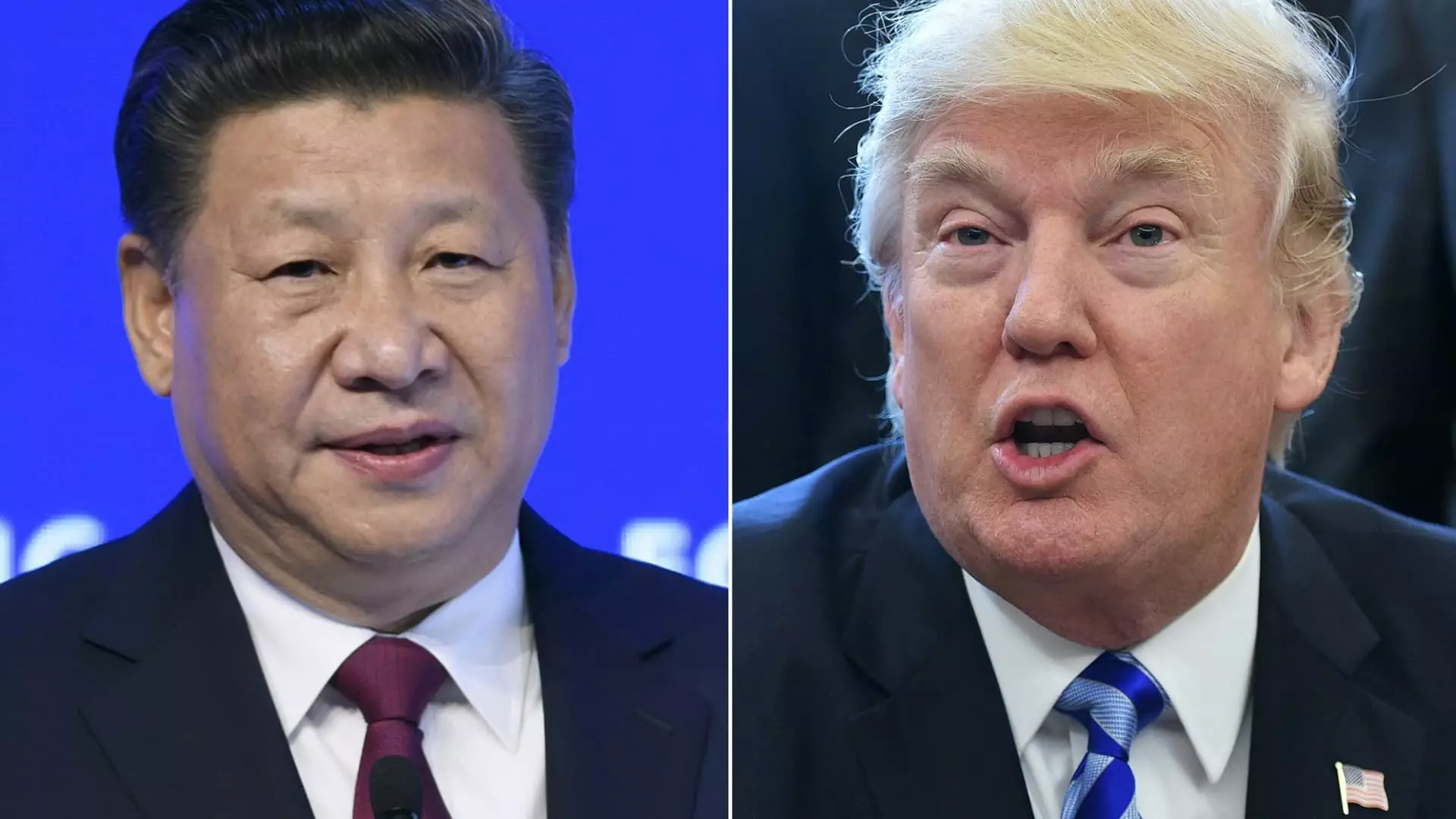Amidst a symphony of economic uncertainties, President Trump has taken a provocative stance towards China, asserting that the nation has completely disregarded the preliminary trade agreement established between the two economic giants. This latest declaration isn’t merely a political tirade; it reflects a deeper rift in international relations and raises profound questions about the stability of global markets.
Trump, ever the maestro of hyperbole, communicated his discontent on social media, deriding his erstwhile attempt at being “Mr. NICE GUY.” Such statements may resonate with his base, but they unequivocally highlight a broader pattern of unpredictability that has characterized his presidency. When stock futures took a nosedive following his announcement, it was not solely a reaction to his words; it illustrated the market’s nervousness about the consistency of U.S. trade policies.
The Implications of Non-Compliance
U.S. Trade Representative Jamieson Greer supported Trump’s claims during a CNBC interview, voicing concerns over China’s alleged sluggishness in adhering to the terms of the agreement. His comments accentuate an alarming trend: a failure to uphold trade commitments breeds mistrust and may force the United States to reconsider its negotiating strategy. The American approach to international trade, rather than being a steadfast exchange, often morphs into a series of unpredictable episodes, leaving businesses and investors on edge.
The notion that U.S. actions were entirely compliant while China lagged further entrenches the perception that the United States holds a moral high ground in trade negotiations. Yet, this self-assured sentiment neglects the complexities of global trade. China, being a significant player, cannot simply be constrained or coerced without repercussions for the broader economic ecosystem. Trump’s strategy of combative tariffs—though initially effective in garnering attention—may ultimately lead to long-term economic consequences that far outweigh temporary gains.
Unfolding Fallout: Tariffs and Tactics
The trade saga escalated when Treasury Secretary Scott Bessent revealed that discussions with China had hit an impasse. This revelation casts a pall over what could have been a period of economic stabilization. The interim détente, established to pause the onslaught of tariffs, now faces jeopardy under increasing scrutiny. Trump’s history of leveraging tariffs as a negotiation tool has morphed into a high-stakes gamble where both parties risk being dealt a poor hand.
Reflecting on Trump’s tariff strategy, it’s worth considering the economic ramifications for American consumers and businesses. While the administration may paint a picture of triumph, the truth often lies in the shadows. Tariffs serve as a hidden tax that ultimately raises prices for everyday goods, disproportionately impacting low- and middle-income households. The narrative of “America First” crumbles under the weight of inflationary pressures and reduced consumer spending power.
The Role of the Media: A Double-Edged Sword
The media, particularly in a polarized environment, plays a crucial role in shaping public perception. In this context, Trump’s disruptive approach to trade often garners sensational headlines and social media buzz. However, the interplay between political rhetoric and factual reporting can distort the realities of economic policymaking. When a term like “TACO trade” emerges—referring ironically to Trump’s tendency to retreat from aggressive stances—the conversation strays from constructive discourse into the realm of ridicule.
This diminutive branding can mask severe policy implications as well. By belittling Trump’s strategies, critics may inadvertently overlook the real costs of such tactics, not just for the immediate stakeholders but for the global economic landscape. In challenging times, when economic structures wobble due to political instability, there must be more substantial engagement from both media and citizens rather than mere derision.
The Cycle of Crisis and Opportunity
At this juncture, it is essential to examine whether this chaos can transmute into an opportunity for genuine change. The U.S. must not solely focus on punitive measures against China but also consider collaborative avenues that leverage shared interests in combating global challenges like climate change and technological advancement. Such a pivot would not only rejuvenate U.S.-China relations but could serve as a blueprint for future engagements with other nations as well.
However, this prospect is often eclipsed by the antagonistic posturing that has come to define Trump’s negotiations. As a center-left, liberal observer of these proceedings, I see a pressing need for the United States to adopt a more balanced, diplomatic approach that recognizes the complexities of international trade rather than retreating into isolationist tendencies. It is crucial that American leadership aspires not just to win isolated battles, but rather to cultivate sustainable relationships that promote stability and prosperity on a global scale.



Leave a Reply